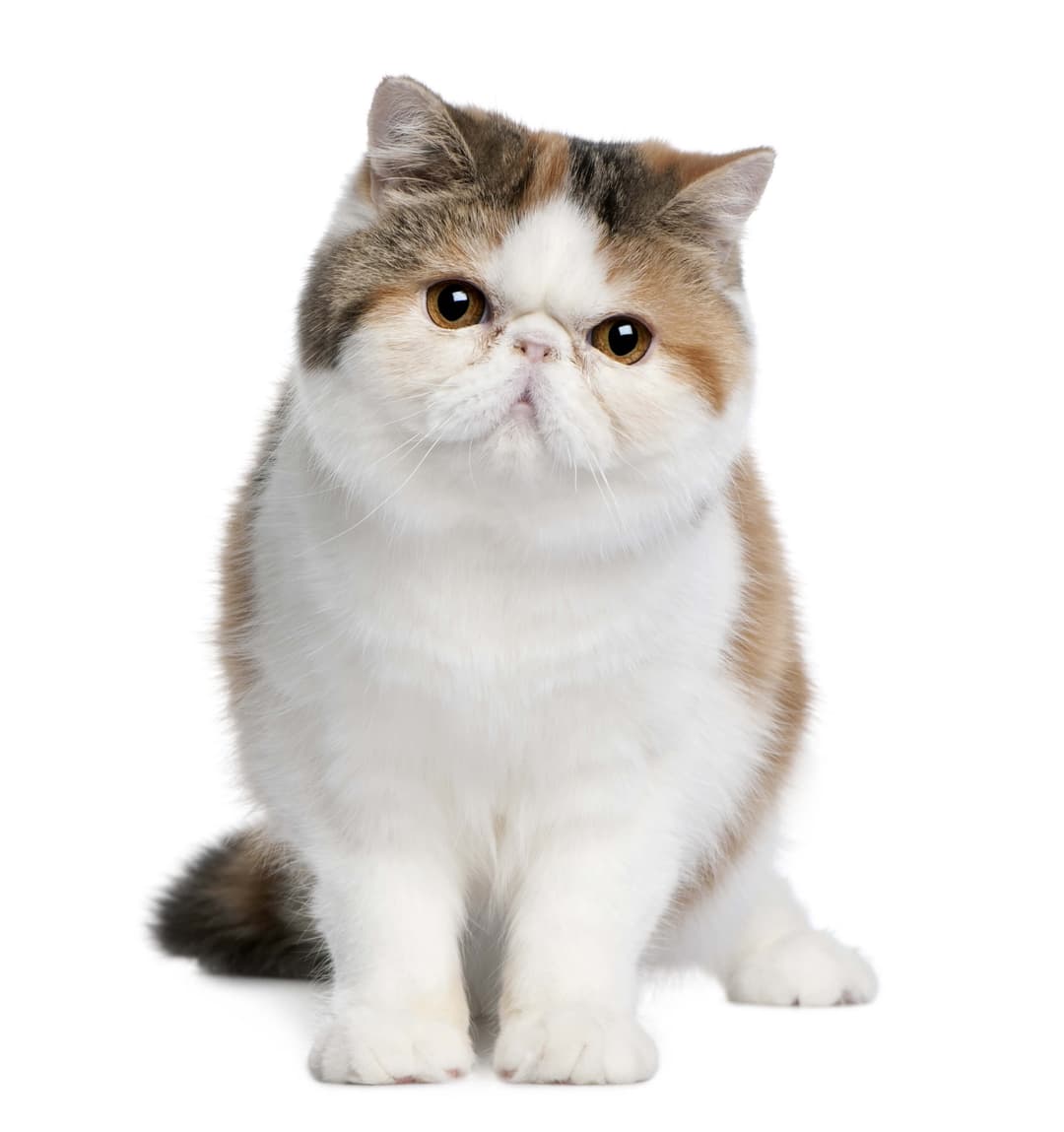Discover your cat's connection to this breed and 20 others


Discover your cat's connection to this breed and 20 others



Exotic Shorthairs share the same body type as the Persian and the Himalayan, yet are distinguished by their short, coarse coat that is significantly easier to maintain. These easy-going cats love to follow their humans from room to room, and they enjoy being in households with children and other pets.
The Exotic Shorthair was created to be a shorthaired version of the Persian cat. Except for the fur, it meets all the breed standards designed for its Persian parent breed. These cats are medium-sized, with a broad, oval head and a short, "pushed in'' muzzle. Their coat is short, yet slightly longer than lengths generally seen in other shorthaired cats. They come in all colors and patterns.
The history of the Exotic Shorthair dates back about 50 years. American Shorthair (ASH) breeders decided, in secret, to improve the body type of the ASH by introducing the Persian into the bloodline. This new crossbreed gained unexpected attention, which eventually resulted in the creation of a brand-new breed standard. However, the secrecy behind this ASH breeder effort resulted in the disqualification of ASH crossbreeds from the show ring. In 1966, the Cat Fanciers' Association officially recognized the new ASH crossbreed as the name Exotic Shorthair. Further outcrossing with other breeds occurred until this was banned in 1987, after which the Exotic Shorthair could only be bred with the Persian.
The Exotic Shorthair is a very gentle and calm kitty. Its personality reflects the best traits of its parent breeds. They are often playful and energetic like the American Shorthair, yet despite their active nature, they are well-suited for a life in the apartment. They have the affectionate and loyal qualities of the Persian, which they often display as purrfectly loving lap cats.
Like the Persian, Himalayan, and Burmese, the Exotic Shorthair is a brachycephalic breed. Brachycephaly in cats is a trait of skull bones shortened in length, which gives the face and nose a pushed in appearance. Health problems associated with this condition include brachycephalic airway obstructive syndrome, tooth misalignment, tooth crowding, tear duct issues, and heart problems. The breed is also known to have an increased risk for calcium oxalate urolithiasis, dystocia, and polycystic kidney disease.
They are surprisingly low-maintenance. The Exotic Shorthair is as low-maintenance as the laid-back American Shorthair. Though they need occasional grooming, regular feeding, and lots of playing and cuddling, these cats aren’t high maintenance. With an Exotic Shorthair, you get to enjoy their luscious coats, without having to spend too much time grooming them. For this reason, they carry the nickname, "the lazy person’s Persian".
They are sometimes born with long hair. Some Exotic Shorthairs carry the recessive long-hair gene of the Persian, so those kittens may display the longhaired feature. Depending on the registry, these kittens can be accepted either as Exotic Longhairs or Persians.
They are round, all around. It is often said that the word 'round' is key when describing the Exotic Shorthair. Their head is round, their ears are round, their eyes are round, and so is their muzzle. They have beautifully round paws and an all-around, rounded body. See?
They often shy away from strangers. Exotic Shorthairs are generally very friendly and social, but they can be fearful and shy around people they don’t know. So, if they have to engage with strangers, they will feel a lot more comfortable if they have their favorite human nearby.
They are one of the most popular cat breeds out there. According to the Cat Fanciers' Association, the Exotic Shorthair is the second most popular breed - and rightly so! They are affectionate, loyal, playful, and cuddly. Everything a human could wish for in a furry companion.
Recommended by top vets with decades of experience
21 breeds
64 genetic health markers
50 genetic trait markers
